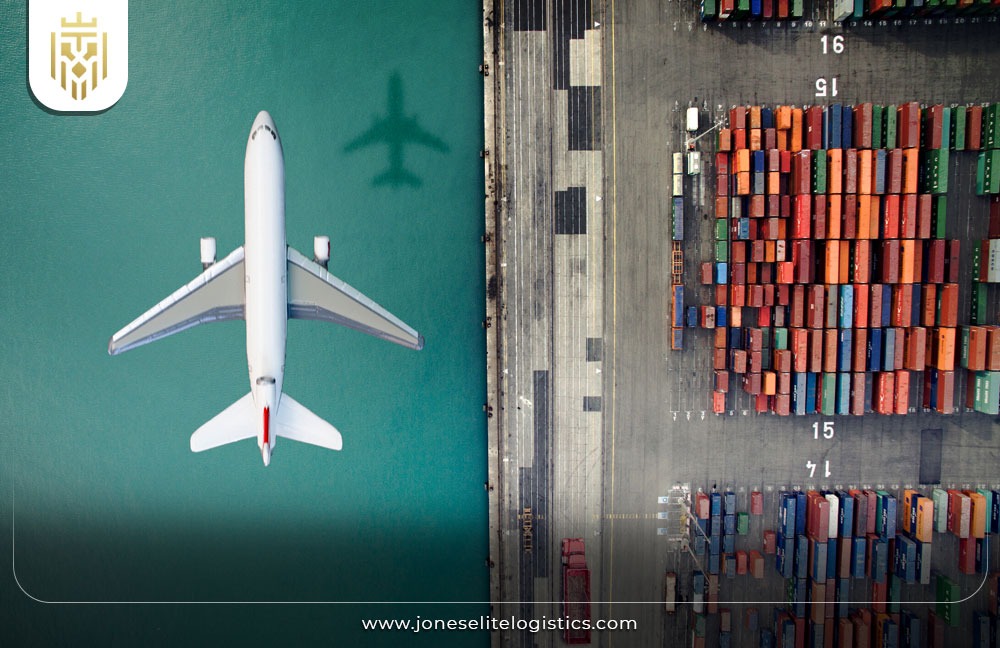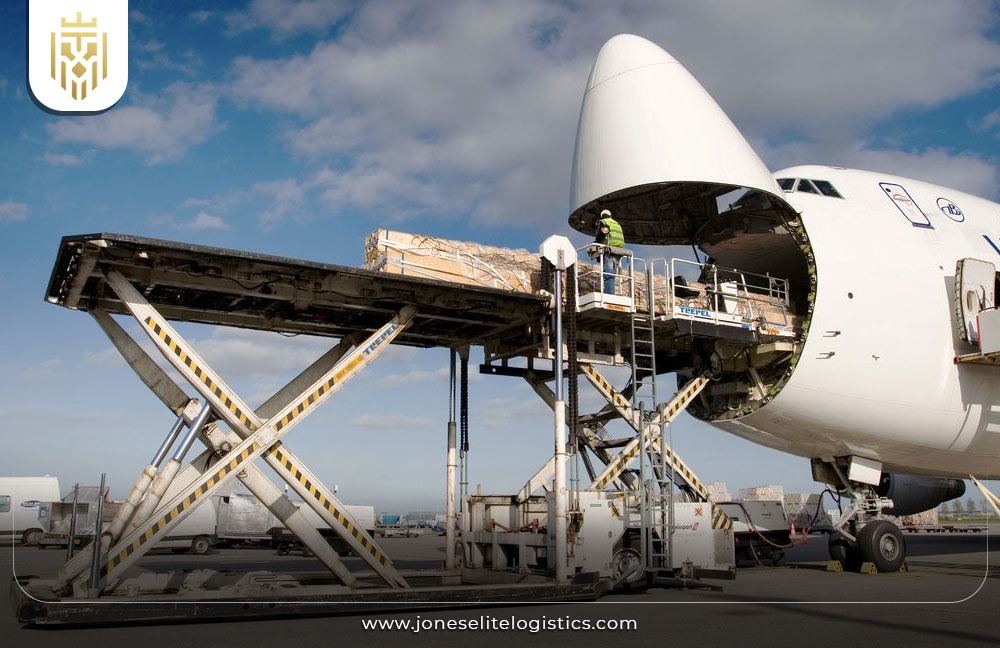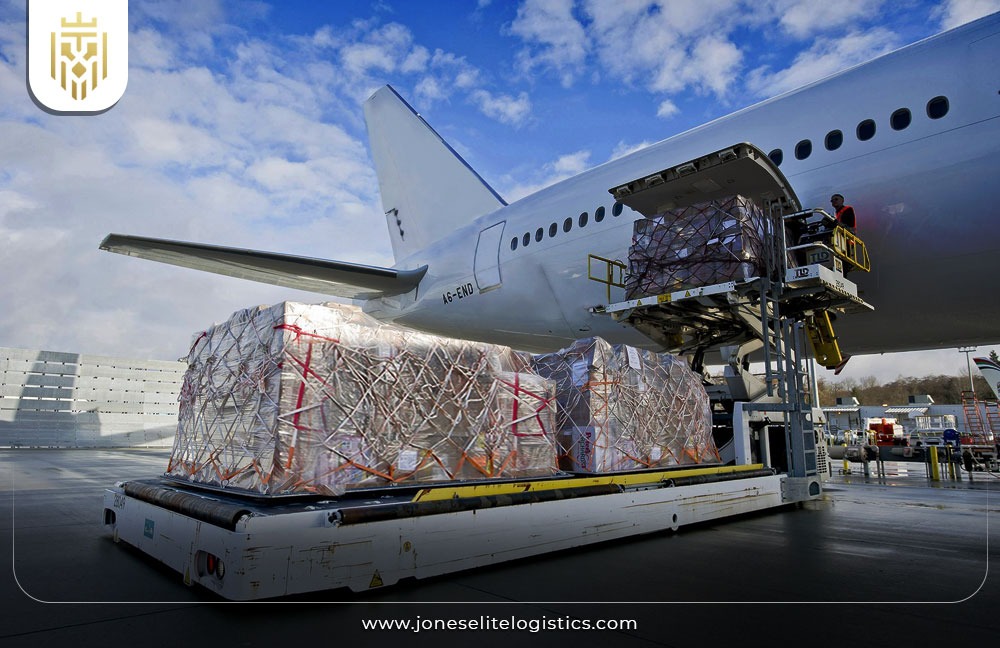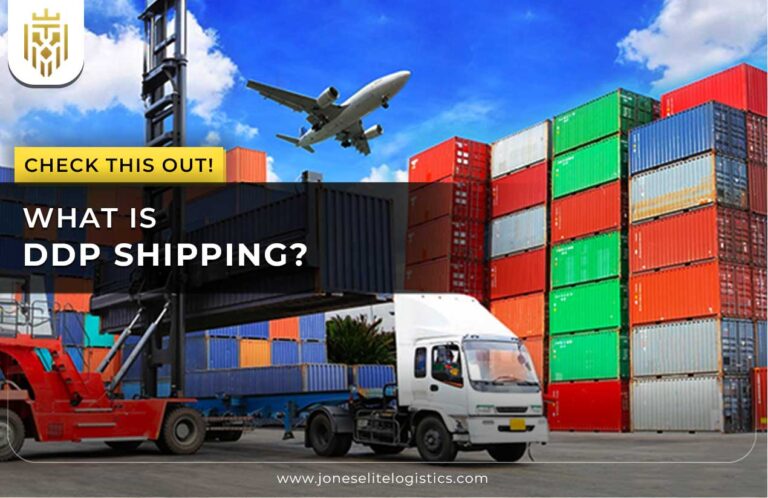What is Aviation Logistics?
Aviation logistics is a specialized form of logistics where air cargo is received, checked with proper handling, and then transferred from point A to point B via aeroplanes.

Importance of Aviation in Logistics:
Aviation is preferred for transporting high-value or perishable goods over long distances. It aids international business by delivering goods on time, cutting transit times, and connecting isolated or landlocked countries to the global market. Compared to other modes, aviation ensures faster, damage-free delivery, enhancing logistics supply chain value and efficiency.
Components of Aviation Logistics:
Aviation Logistics comprises several components that ensure efficient cargo movement, safety, and overall operational effectiveness. They include:
Demand Forecasting:
Demand forecasting is the process of predicting variations in cargo volumes during the year and optimising the inventory and resource allocation, reducing costs and improving service quality.
Ground Support:
Ground support ensures smooth travel by managing aircraft luggage, transporting goods to and from the aeroplane/airport with luggage carts, ensuring turnaround times are minimized and enhancing supply chain management.

Airport Operations Management: (activities in airport)
Airport operations management stands as the key toward maintaining the airport’s smooth and efficient functionality, as it manages air traffic control, security, goods flow, and facility maintenance, ensuring smooth airport functionality and efficient supply chain management.
Customer Service:
Customer service deals with the interactions between customers and the transcompany, resolving issues and ensuring a pleasant trip, which is crucial for customer satisfaction and loyalty.
Types of Services in the Aviation Logistics Sector:
Air cargo handling services help manage cargo to reduce damages and time taken in the movement of goods within the airport. These services are essential in the aviation aerospace sector, ensuring the efficient handling of air cargo in the logistics supply chain.
Air Cargo Handling Services:
Air cargo handling services are involved in cargo loading, offloading, sorting, and securing at airports, ensuring the smooth transportation of goods through the airport.

Off-Airport Cargo Terminals:
Off-airport cargo terminals are located off airport land, where they handle, store, and transfer cargo. These terminals assist in reducing airport traffic and increasing logistics capacity.
Trucking Services:
Aviation logistics trucking services move cargo between airports or from an airport to a warehouse and finally to the end consumer, ensuring timely last-mile connectivity and efficient movement of consignments in the global logistics supply chain.
Warehousing Services:
A warehousing service in aviation logistics provides storage and protection for unshipped or yet-to-be-shipped products, essential for managing the aviation logistics supply chain.
Challenges of Aviation Logistics:
There are several issues affecting aviation logistics, and solving them is important to guarantee the stability of processes in the aviation aerospace industry.
Fluctuations in Fuel Prices:
Fuel costs are a major determinant of the costs of aviation logistics, and they vary greatly over time, affecting profitability and operational planning, requiring pricing adaptations and fuel-efficient measures to maintain profitability.
Rising Threats from Cybersecurity Breaches:
Cyber threats can disrupt operations and cause data and financial losses. Strong cybersecurity measures and regular updates are crucial, and employees must be educated about data protection within the aviation industry.

Effects of Global Conflicts on Aviation:
International conflicts limit airspace use, heighten security threats, and changes to global trade routes. Such conflicts alter trade routes, causing delays and increased costs.
Insufficient Airline Facilities and Resources:
Lack of infrastructure, cargo capacity, and inadequate human resources slows down logistics. Investment in technology, capacity, and staff development is needed to increase productivity and service quality.
Latest Technologies to Enhance Aviation Logistics Performance and Efficiency:
The aviation industry is applying advanced technologies, which are crucial in the global aviation logistics supply chain, providing innovative solutions to industry challenges.
Blockchain Technology:
Blockchain technology creates a reliable record of cargo and transactions. It enhances the tracking of goods, minimizes cases of fraud, and makes documentation procedures more effective and secure.
![]()
Artificial Intelligence:
AI uses predictive analytics and demand forecasting and automating decision-making processes. Optimizing routes, inventory, and maintenance schedules, it provides reduced costs, and increased productivity.
Internet of Things:
The Internet of Things (IoT) transforms aviation logistics by providing real-time data on consignments, tools, and climate, improving logistics visibility and efficiency.
FAQs
1) What is Aviation Logistics?
Aviation logistics is a specialized form of logistics where air cargo is received, checked with proper handling, and then transferred from point A to point B via aeroplanes
2) What are the Components of Aviation Logistics?
The components are demand forecasting, ground support, airport operations management, customer service, and baggage handling, all needed for efficient and reliable aviation operations in the global supply chain.
3) What are the Challenges of Aviation Logistics?
Some risks are changes in fuel prices, cyber risks, effects of war, and limited airline amenities and infrastructure, which hinder business operations and affect the overall efficiency of the aviation logistics supply chain.
4) What is the Importance of Aviation in Logistics?
Aviation is important for the rapid and efficient movement of people and goods over long distances, for commerce, for time-sensitive freight, for reaching out to isolated places, and for making the supply chain and economic development faster, adding significant value to the logistics industry.







